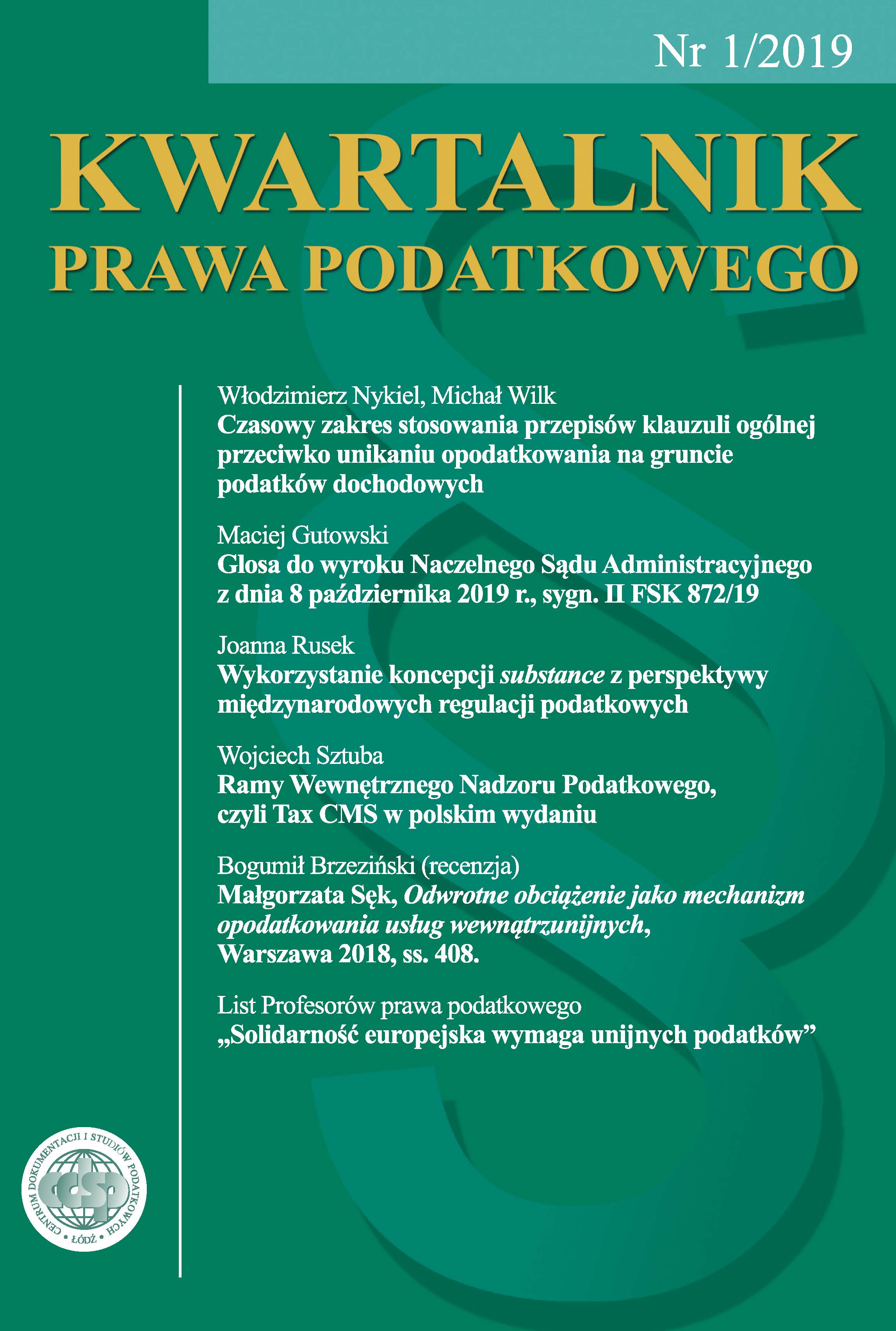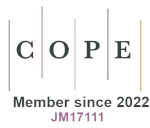Use of the concept of economic substance from the perspective of international tax regulations
DOI:
https://doi.org/10.18778/1509-877X.2019.01.03Keywords:
tax avoidance, economic substance, BEPS, OECD Model Tax ConventionAbstract
The aim of this article is to demonstrate different ways in which the concept of economic substance is used on an international basis. From that perspective the outcomes of the BEPS project were firstly examined. Another area of interest was the usage of the concept of economic substance by the OECD Model Tax Convention. Bearing in mind the above works the concept of economic substance – understood as creation of value basing on really performed functions, engaged assets and employees as well as borne risks – was found particularly useful for the purpose of counteracting tax avoidance.
Downloads
References
Action Plan on Base Erosion and Profit Shifting, OECD Publishing, Paris 2013.
Google Scholar
Aligning Transfer Pricing Outcomes with Value Creation, Actions 8–10 – 2015 Final Reports, OECD/G20 Base Erosion and Profit Shifting Project, OECD Publishing, Paris 2015.
Google Scholar
Countering Harmful Tax Practices More Effectively, Taking into Account Transparency and Substance, Action 5 – 2015 Final Report, OECD/G20 Base Erosion and Profit Shifting Project, OECD Publishing, Paris 2015.
Google Scholar
Developing a Multilateral Instrument to Modify Bilateral Tax Treaties, Action 15 – 2015 Final Report, OECD/G20 Base Erosion and Profit Shifting Project, OECD Publishing, Paris 2015.
Google Scholar
Konwencja między Rzecząpospolitą Polską a Stanami Zjednoczonymi Ameryki w sprawie unikania podwójnego opodatkowania i zapobiegania uchylaniu się od opodatkowania w zakresie podatków od dochodu, https://www.podatki.gov.pl/media/1910/20130213_konwencj_usa_pl.pdf (dostęp: 4.02.2020).
Google Scholar
Kosters B., Substance over Form under Tax Treaties, „Asia-Pacific Tax Bulletin” styczeń/luty 2013.
Google Scholar
DOI: https://doi.org/10.59403/3h9wkkh
Model Tax Convention on Income and on Capital: Condensed Version 2017, OECD Publishing, Paris 2017.
Google Scholar
Monsenego J., The Substance Requirement in the OECD Transfer Pricing Guidelines: What Is the Substance of the Substance Requirement, „International Transfer Pricing Journal” January/February 2014.
Google Scholar
DOI: https://doi.org/10.59403/3h9myhj
Multilateral Convention to Implement Tax Treaty Related Measures to Prevent Base Erosion and Profit Shifting, http://www.oecd.org/tax/treaties/multilateral-convention-to-implement-tax-treaty-related-measures-to-prevent-BEPS.pdf (dostęp: 4.02.2020).
Google Scholar
OECD Transfer Pricing Guidelines for Multinational Enterprises and Tax Administrations 2017, OECD Publishing, Paris 2017.
Google Scholar
Preventing the Granting of Treaty Benefits in Inappropriate Circumstances, Action 6 – 2015 Final Report, OECD/G20 Base Erosion and Profit Shifting Project, OECD Publishing, Paris 2015.
Google Scholar
Resumption of application of substantial activities for no or nominal tax jurisdictions – BEPS Action 5, OECD, Paris 2018.
Google Scholar
Savoia R., Hurdowar Y., Switzerland: Embracing the worldwide trend of increasing substance requirements, „International Tax Review”, https://www.internationaltaxreview.com/article/b1f9jxz7hbz15p/switzerland-embracing-the-worldwide-trend-of-increasing-substance-requirements (dostęp: 4.02.2020).
Google Scholar
Stewart M., Abuse of Economic Substance in a Digital BEPS World, „Bulletin for International Taxation” June/July 2015.
Google Scholar
DOI: https://doi.org/10.59403/3kwmfx6
Toit du Ch. P., Beneficial Ownership of Royalties in Bilateral Tax Treaties, IBFD, Amsterdam 1999.
Google Scholar
Downloads
Published
How to Cite
Issue
Section
License

This work is licensed under a Creative Commons Attribution-NonCommercial-NoDerivatives 4.0 International License.
PlumX metrics









